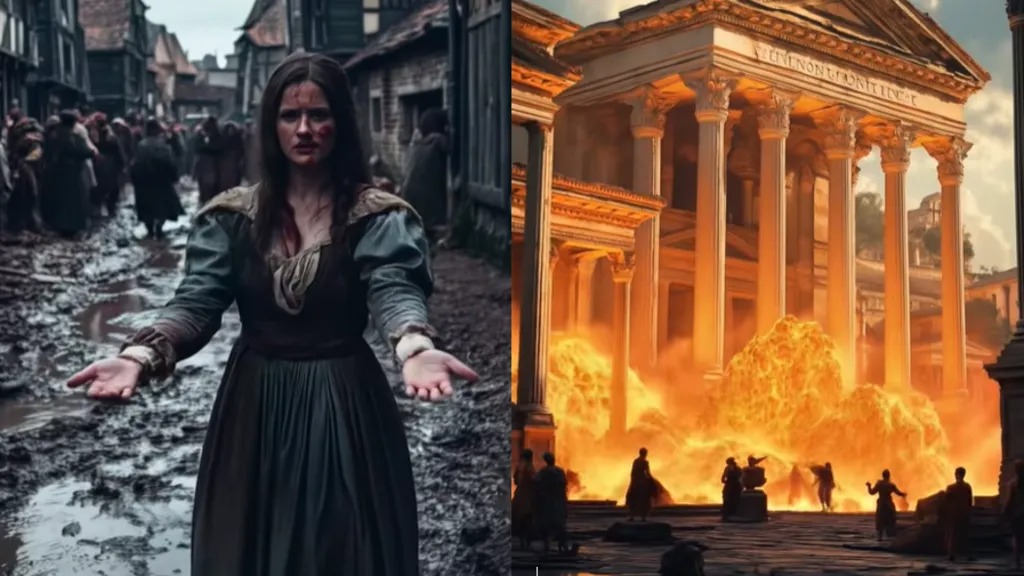
AI History Videos Captivate Millions
AI history videos have swept TikTok in early 2025, offering vivid first-person glimpses of ancient Rome, Egypt, and plague-ridden London. Creators Dan (UK-based POV Lab) and Hogne (Norway’s Time Traveller POV) craft these clips—Hogne’s Black Death video hit 53 million views—using AI to animate sights and sounds. Dan told the BBC it’s about “bringing history to life,” while Hogne, 27, aims to teach “cool parts of history.” Yet, as of February 22, 2025, at 7:47 PM PST, historians critique these viral hits as “amateurish” and “dangerous,” questioning their accuracy and impact on a curious public.
Hogne’s medieval London, with misty streets and plague bells, thrills viewers, but Dr. Amy Boyington calls it “sensational,” not factual—glazed windows and train tracks clash with the 1300s. Dan’s Pompeii eruption video, evoking Vesuvius’s chaos, irks Dr. Hannah Platts for ignoring Pliny the Younger’s account—no lava at the start—and featuring anachronisms like stemmed glasses and modern bread. Dan admits flaws, saying, “They’re artistic interpretations, not documentaries,” meant to evoke feelings, not facts. Hogne strives for accuracy but notes AI’s limits, taking eight hours per video solo.
AI History Videos: Education or Misinformation?
Historians fear AI history videos could warp perceptions. Boyington warns of manipulation—imagine Holocaust denial clips—especially for youth encountering history here first. Platts sees students echoing inaccuracies as fact, noting Pompeii comments reveal viewer confusion. Dan counters, labeling clips AI-made to spark curiosity, not replace education, while Hogne stresses critical thinking predates AI. Yet, Dr. Barbara Keys, reviewing a Chernobyl video, dubs it a “black box”—no sources, showing post-disaster reactors, misleadingly suggesting shoddy Soviet tech when it was advanced. For more, visit BBC or Kenkou Land.
Main Body: Promise and Peril of AI History
The AI history videos boom, peaking February 22, 2025, blends awe and unease. Egyptologist Elizabeth Frood praises potential—“immense benefits” if accurate—but slams a 1250 BC Egypt clip for homogenizing a vast era, with backward hieroglyphs signaling “poor research.” Keys ties their virality to AI fascination, not depth—Chernobyl’s clip skips the accident’s story. Boyington sees a “gateway” to history, inspiring research, yet Platts flags unchecked misinformation risks. Dan’s four-hour process—AI tools, historical docs—aims for “some accuracy,” while Hogne’s ChatGPT-driven eight-hour grind admits errors he can’t always catch solo.
Both creators eye fixes—Hogne mulls source links, Dan refines details like “cobblestone floors.” Historians urge rigor; Frood demands verifiable data, not AI’s “creative” leaps. Today, at 7:47 PM PST, these videos—53 million views strong—teeter between marvel and menace. Will better tools and transparency bridge the gap, or will “amateur and dangerous” stick? They ignite history’s spark, but the flame’s truth flickers—curiosity ignited, accuracy TBD.





